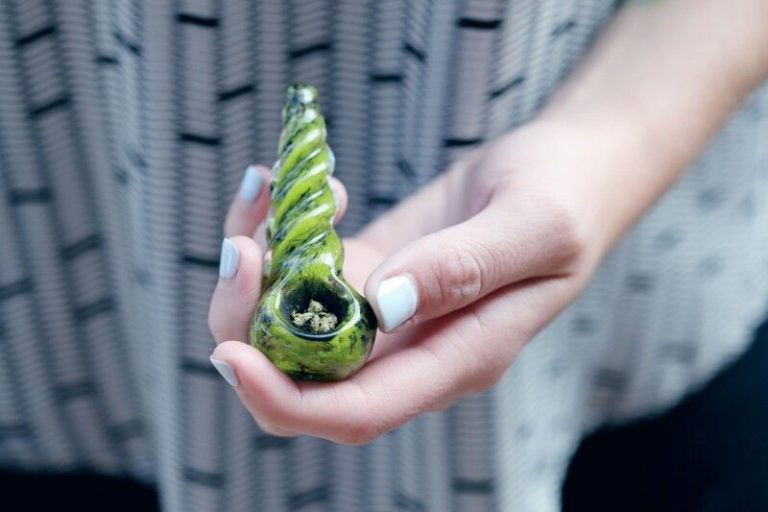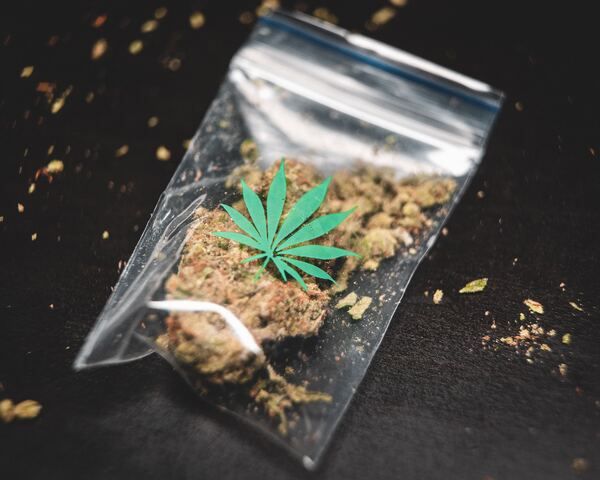Ohio stands at a crossroads. After voters approved recreational marijuana legalization in November 2023, the state has moved toward granting dispensary licenses. Once set up, all adults will be allowed to purchase cannabis products.
Ohio consumers should carefully consider whether to drop their medical marijuana registration in favor of buying recreational marijuana. Ohio’s medical marijuana system provides several benefits compared to adult-use cannabis. Moreover, a patient with a medical marijuana card can choose either system based on the benefits they seek.
The advantages of being a medical marijuana patient include higher possession limits, making it harder to inadvertently violate drug possession and transportation laws. It also makes it easier for your Dayton drug crime attorney to defend you against such charges.
What’s the Difference Between Ohio’s Medical and Recreational Marijuana?
Medical marijuana and recreational cannabis come from the same cannabis plants. However, the restrictions faced by consumers differ depending on how they obtain their legal marijuana.
Medical Marijuana System

Under the medical marijuana program, medical patients 18 or older visit a doctor approved to prescribe marijuana. If the doctor confirms the patient has one of the approved health conditions, the patient can apply for a medical cannabis card.
Adult-Use Cannabis System
No prior approvals or qualifying health conditions are required to buy recreational cannabis. Consumers 21 years or older can buy up to 2.5 ounces of legalized recreational marijuana at recreational dispensaries.
Differences for Consumers
The following differences separate the medical program from the adult-use cannabis system:
- The age for medical marijuana is lower than the age for adult-use cannabis
- Ohio charges a 10% tax on recreational marijuana that is not charged on medical cannabis products
- Medical marijuana cardholders can purchase larger quantities
- Recreational users can make more frequent purchases
Another important difference is the lack of medical supervision for recreational users. Patients use cannabis to relieve medical conditions, while recreational users consume it for its psychoactive effects. Young recreational users risk addiction and long-term impacts on brain development.
What Are Recreational Marijuana Laws in Ohio?
Ohio had to start from scratch designing an adult-use cannabis system. However, it was able to look to other states for inspiration in setting up its system for licensing recreational dispensaries and regulating the adult-use program.
Is Recreational Marijuana Legal in Ohio?
Recreational use, also called adult use, is legal in Ohio. Recreational marijuana legalization means that the legal status of certain activities went from illegal to regulated. In other words, marijuana is not necessarily “legal.”
Instead, the state has created a regulatory framework to allow cultivation, processing, sale, possession, and transportation by approved businesses and their consumers.
Under Ohio’s system, recreational dispensaries can sell cannabis products to anyone 21 or older. It also means these adult consumers can engage in recreational use without fear of arrest and prosecution by Ohio law enforcement agencies.
However, legalization comes with three caveats. First, licensed dispensaries must follow the new law, particularly laws against underage sales. Second, unlicensed growers and traffickers violate Ohio law and can face prosecution.
Third, decriminalization by Ohio did not affect federal law. The U.S. government still has laws against marijuana trafficking and possession.
When Can Ohioans Buy Recreational Marijuana?
After Ohio voters passed the ballot initiative approving recreational marijuana, Ohio’s legislature passed enabling legislation on December 7, 2023. The bill gave the state nine months to issue dispensary licenses. Based on this deadline, adult-use consumers can expect recreational dispensaries to open in early fall at the latest.
However, the state issued provisional licenses to the first group of dispensaries on June 21, 2024. While they have not yet received final approval to begin sales, they expect to receive this approval soon. The state is expected to grant additional licenses once it assesses sales volumes at the first set of locations.
Until recreational dispensaries open, state laws continue to prohibit the possession, sale, or transportation of any amount of cannabis product for recreational rather than medical use. Thus, your only option for purchases before adult-use dispensaries open is to get a medical marijuana card so you can purchase medical cannabis.
Can I Grow My Own Marijuana in Ohio?
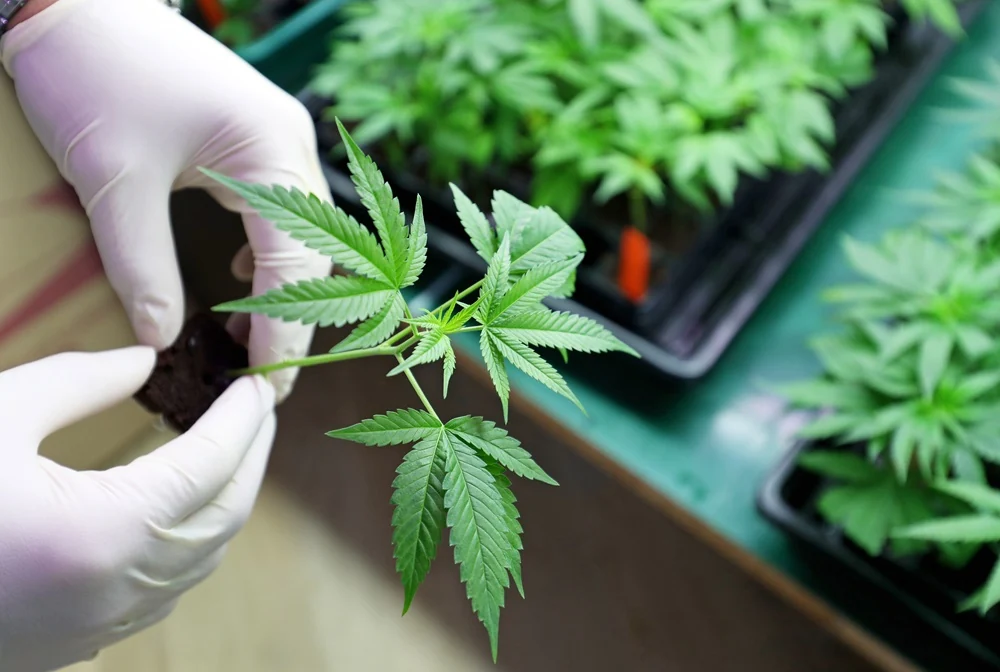
The bill passed in 2023 authorizing recreational marijuana also decriminalized the cultivation and processing of up to six plants for personal use.
To grow plants, you must meet the following requirements:
- You must be 21 or older
- You can only grow plants at your primary residence
- If you live with others, you cannot grow more than twelve plants in total
- The home growing space must be secured to prevent unauthorized access by minors
- The plants must not be visible from any public space
The grower does not need a special license. They can process their plant material by hand but cannot use hydrocarbon-based extraction methods. The grower can transfer the plants to other people over 21 as long as they do not charge for them or benefit commercially from the transfer. In other words, you must give them away as gifts.
Finally, if you rent property, your landlord can prohibit cultivation by including the restriction in your lease.
Do Marijuana Users Have Employment and Other Protections?
Ohio’s adult-use cannabis laws lack protections from termination or other adverse employment consequences for failing a drug test. Employers are entitled to maintain drug-free workplace policies without providing any justification for them. Specifically, it is legal for employers to mandate that workers take and pass drug tests. If they fail, they can fire or suspend them.
Moreover, the law treats anyone fired for using marijuana or failing a drug test as “discharged for just cause.” This means the worker cannot apply for unemployment benefits from the state.
However, state law protects adult-use cannabis users from the following:
- Disciplinary action by professional licensing boards
- Adverse action based solely on cannabis use affecting a user’s parental rights or parenting time
- Disqualification from medical care or an organ transplant
- Conducting a field sobriety test without independent suspicion of OVI
- Rejection as a tenant, although a landlord can prohibit on-premises use in the lease
- Removal or rejection from public assistance programs
The laws maintain a public place’s right to prohibit or allow cannabis use on their property. It also allows the federal, state, and local governments to prohibit cannabis use on public land.
Contact Gounaris Abboud today for a personalized consultation to understand your rights and responsibilities. Call us at 937-222-1515 now!
What Are Medical Marijuana Laws in Ohio?
Medical dispensaries were approved by legislation passed in 2016. The state approved a long list of medical reasons for approving a patient’s medical marijuana card. Once approved, the patient could buy an approved quantity from medical dispensaries.
Is Medical Marijuana Legal in Ohio?
Yes. Ohio is one of many medical marijuana states in the nation. Known as the Ohio Medical Marijuana Control Program (MMCP), the medical marijuana system in Ohio permits the cultivation, sale, possession, and use of marijuana for medical purposes.
Qualified patients may acquire legalized medical marijuana in Ohio in various forms from licensed dispensaries, which must comply with numerous legal and quality-control standards. The revenue contributes to various funds, such as the host community cannabis fund.
Obtaining medical marijuana outside of MMCP guidelines and regulations is illegal and can be punished severely with criminal charges.
Who Is Eligible for an Ohio Medical Marijuana Card from Ohio’s Division of Cannabis Control?
In Ohio, medical marijuana is only available for patients who suffer from a “qualifying medical condition.”
Cannabis control laws provide a list of all qualifying medical conditions, which currently includes the following:
✓AIDS
✓Amyotrophic lateral sclerosis
✓Alzheimer’s disease
✓Cachexia
✓Cancer
✓Chronic traumatic encephalopathy
✓Crohn’s disease
✓Epilepsy (and other seizure disorders)
✓Fibromyalgia
✓Glaucoma
✓Hepatitis C
✓Huntington’s disease
✓Inflammatory bowel disease
✓Multiple sclerosis
✓Parkinson’s disease
✓HIV
✓Post-traumatic stress disorder (PTSD)
✓Sickle cell anemia
✓Spasticity
✓Spinal cord disease or injury
✓Terminal illness
✓Tourette’s syndrome
✓Traumatic brain injury
✓Ulcerative colitis
Additionally, anyone who experiences “chronic and severe or intractable” pain can qualify for medical marijuana. This opens the door for someone to apply for marijuana if they have a disease, disorder, or injury that is not included in the list of enumerated conditions.
Each year, the State Medical Board of Ohio conducts a review process to determine whether new conditions should be added. Through this process, you can request that the Board add your condition to the list.
How to Obtain Approval for Medical Marijuana
Suffering from one of the above-listed conditions qualifies you to become a medical marijuana consumer in Ohio. However, you must take several crucial steps before you will be allowed to purchase, possess, or use medical marijuana.
First, you must visit a qualified doctor with an active certificate to recommend the use of medical marijuana. The doctor will examine you to determine whether you indeed suffer from a qualifying condition. If so, they will add your name to the patient registry.
According to state law, patients sitting for a medical marijuana evaluation must have a valid state-issued ID, which may include a driver’s license, state identification card, or a U.S. Passport. Failure to show proper ID will bar you from participating in the medical marijuana program.
If approved to be one of Ohio’s medical marijuana patients, you will initially receive a prescription for medical marijuana.
Here are some important details about all medical marijuana prescriptions:
- 90-day supply prescriptions are available
- Prescriptions may be refilled up to three times a year
- At least one doctor visit per year is required to continue receiving medical marijuana
The final step is to complete the registration process, which is thoroughly detailed in an email. The process requires the payment of an annual fee of $50 for patients. Caregivers pay $25 per year.
Where Can Medical Marijuana Patients Purchase It?
Ohio permits the sale of medical marijuana only within licensed medical marijuana dispensaries. The Ohio Department of Commerce is authorized to regulate marijuana produced in these establishments and expressly prohibits anyone but qualified caregivers and patients from entering and engaging in medical marijuana transactions.
The Ohio Department of Commerce also collects sales tax revenue for the tax commissioner fund. This tax fund is meant to support the costs of administering the tax. To find a dispensary, simply use this Ohio Medical Marijuana Dispensary Map. Once you find the right location, don’t forget to bring your medical marijuana card and a valid state-issued ID.
How Much Marijuana Can I Possess in Ohio?
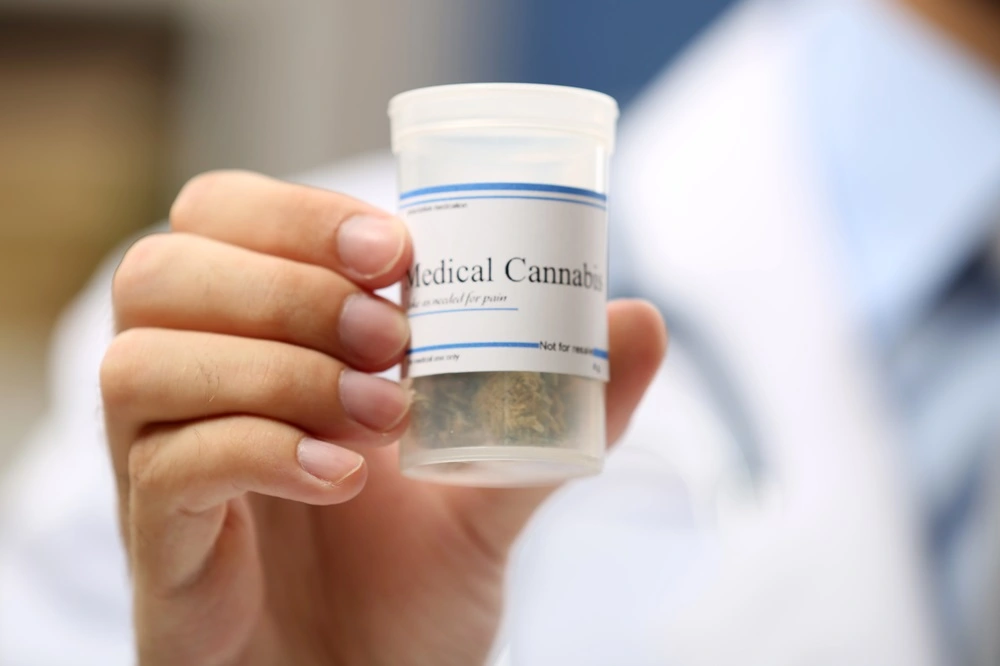
Both the medical cannabis system and the recreational system limit the quantity you can possess at any one time. Under the medical system, you can purchase, possess, or transport up to a 90-day supply of marijuana at any one time. However, you can only fill half of your prescription every 45 days.
Thus, to hold the maximum amount, you would need to fill half of your prescription, wait 45 days without consuming any cannabis, and then fill the other half of the prescription. In practical terms, regular users of medical cannabis will typically possess no more than a 45-day supply at any one time.
The 45-day supply can include any one of the following:
- 4.5 ounces of flower/plant
- 26.55 grams of THC oil for vaping
- 4.95 grams of THC oil for oral consumption
- 13.275 grams of THC oil for application to the skin
Recreational users can purchase, possess, or transport any one of the following in each transaction:
- 2.5 ounces of flower/plant
- 15 grams of THC extract
However, unlike medical users, the law does not limit the frequency of purchases. Thus, recreational users could purchase that amount every day.
Are There Limits on Marijuana Consumption?
Neither the medical nor recreational system limits marijuana consumption. In effect, a user could consume their entire supply at once. However, there are practical limitations on medical users that could make such consumption undesirable.
First, medical users can only refill their prescriptions once every 45 days. Second, they are not allowed to consume cannabis by combusting or smoking it. Thus, they would have to vape, eat, or rub into their skin enormous amounts of cannabis products to use up their supply quickly.
These restrictions do not apply to recreational users. They can return to the dispensary every day without any waiting period. They can also smoke, vape, eat, or consume cannabis in any way they desire. In short, these cannabis users have no legal or practical limits on the amount they consume.
Operating a Vehicle Under the Influence of Marijuana
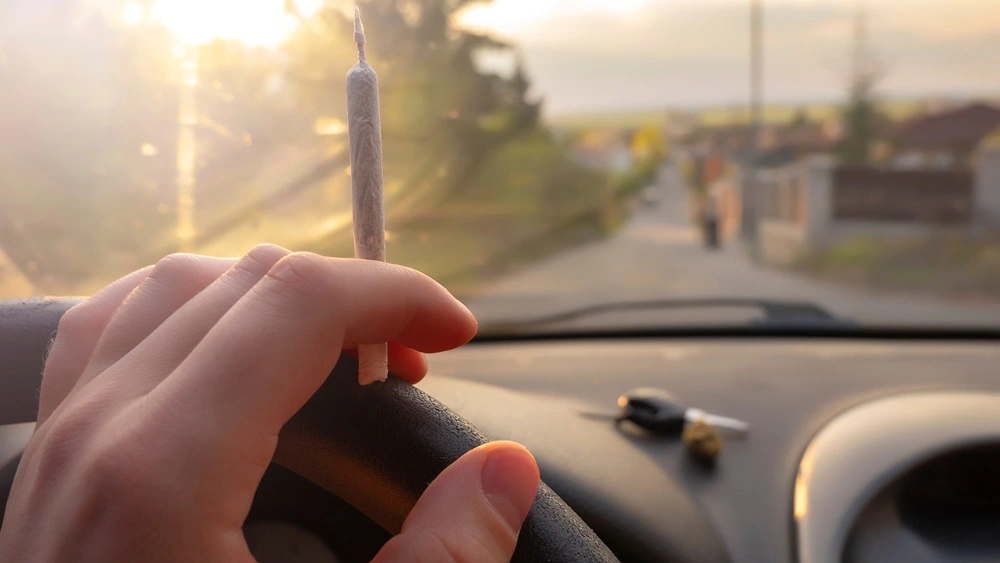
Cannabis legalization did not affect Ohio’s OVI laws. Stoned driving remains illegal under Ohio law. Neither medical nor recreational users can legally drive while impaired by marijuana.
However, officers cannot conduct a field sobriety test solely because they saw you consume marijuana or smelled it when they stopped you. Instead, they must have an independent ground for suspecting impairment.
They can observe your driving, physical appearance, and responses to questions to gauge whether your cannabis consumption has affected your judgment, reflexes, or alertness. Based on their observations, you may be arrested and require a Dayton DUI lawyer.
Crossing State Lines with Marijuana
One of the goals of legalization was to stop the flow of marijuana into Ohio from other states.
Ohio’s laws include several prohibitions to prevent cross-border transportation of cannabis:
- Licensed dispensaries must be located in Ohio
- Dispensaries cannot sell marijuana grown or purchased outside of Ohio
- Users cannot transport out-of-state cannabis into the state
In addition to Ohio state law, U.S. law prohibits the transportation of illegal drugs across state borders. Since the federal government still classifies cannabis as a controlled substance, it can prohibit its transportation into or out of Ohio.
Get Help from a Criminal Defense Attorney
The legalization of recreational cannabis represents a significant addition to the legalized medical cannabis system. However, limitations on possession amounts, interstate transportation, and operating under the influence mean that prosecutors will continue to file marijuana-related criminal charges even after legalization.
Although attitudes have evolved, a drug conviction can still stigmatize you. In addition to losing your freedom, you might have difficulty finding employment or a home with a criminal record.
Our Dayton criminal defense attorneys will tailor a defense for your specific circumstances when you face charges relating to recreational or medical cannabis. Contact us for a free consultation to discuss your case.



